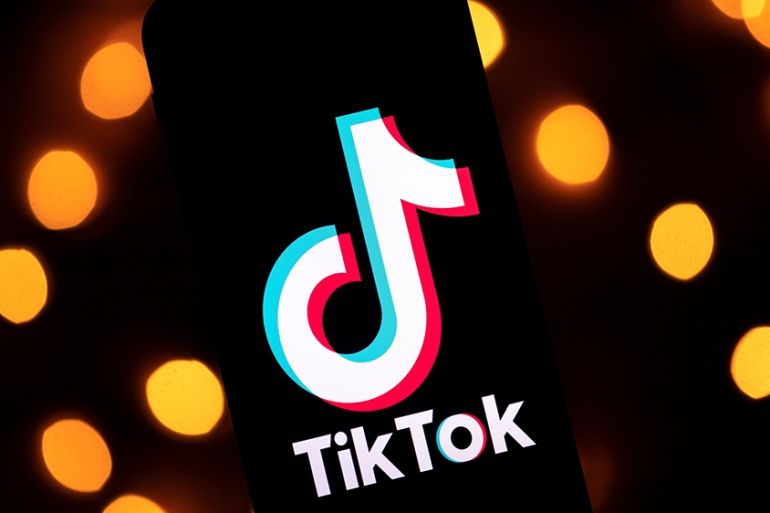TikTok: Trump says will ban Chinese-owned video-sharing app in US
US officials fear China using popular video-sharing app for nefarious purposes, but company denies links to Beijing.

President Donald Trump has said he will bar fast-growing social media app TikTok from the United States as US authorities raise concerns the Chinese-owned video-sharing service could be a tool for Chinese intelligence.
US officials and legislators in recent weeks have voiced fears of the wildly popular video platform being used by Beijing for nefarious purposes, but the company has denied any links to the Chinese government.
Keep reading
list of 4 itemsBoeing’s jets turn 70: A timeline of highs, lows and turbulence
US university ties to weapons contractors under scrutiny amid war in Gaza
Scientists discover sperm whale ‘phonetic alphabet’
Media reports on Friday said Trump would require the US operations of the app be divested from its Chinese parent firm ByteDance, but the president later announced a ban.
“As far as TikTok is concerned, we’re banning them from the United States,” he told reporters.
Trump added he could take action as soon as Saturday using his emergency powers.
His comments came as the Committee on Foreign Investment (CFIUS) in the US, which investigates deals affecting the country’s national security, finalised a review of the company.
Earlier reports had suggested US tech giant Microsoft was in talks to acquire TikTok, which could be valued in the tens of billions of dollars, but Trump’s move would scupper such a purchase.
TikTok issued a statement on Friday saying that, “While we do not comment on rumors or speculation, we are confident in the long-term success of TikTok.”
On Saturday morning, TikTok posted a short video online from Vanessa Pappas, its US general manager, saying, “We’re not planning on going anywhere.”
A message to the TikTok community. pic.twitter.com/UD3TR2HfEf
— TikTok (@tiktok_us) August 1, 2020
‘We are not political’
TikTok, especially popular with young audiences who create and watch its short-form videos, has an estimated one billion users worldwide, including tens of millions of US users, with tech giants such as Facebook and Snapchat seeing it as a competitive threat.
But its Chinese ownership has raised concerns about the censorship of videos, including those critical of the Chinese government, and the potential for sharing user data with Chinese officials.
TikTok maintains it does not censor videos based on topics sensitive to China and it would not give the Chinese government access to US user data even if asked. It has hired a US CEO and a former top Disney executive in an attempt to distance itself from its Chinese ownership.
This week, the company also pledged a high level of transparency, including allowing reviews of its algorithms, to assure users and regulators.
“We are not political, we do not accept political advertising and have no agenda – our only objective is to remain a vibrant, dynamic platform for everyone to enjoy,” TikTok CEO Kevin Mayer said in a statement.
“TikTok has become the latest target, but we are not the enemy.”
The popularity of the platform surged after ByteDance acquired US-based app Musical.ly in 2017 and merged it with its own video service.
James Lewis, head of the technology policy programme at the Center for Strategic and International Studies, said he believes the security risk of using TikTok is “close to zero” but that ByteDance could face pressure from China to engage in censorship.
“It looks like ByteDance may be getting squeezed by Beijing, so making them divest makes sense,” Lewis said. “They could start censoring stuff.”
Lewis said US authorities under CFIUS have the power to unwind an acquisition previously approved and that a similar action was taken in 2019 with the dating app Grindr after a Chinese firm bought it.
Other countries are also taking action against TikTok. India last month banned dozens of Chinese apps, including TikTok, citing privacy concerns, amid tensions between the countries.
|
|